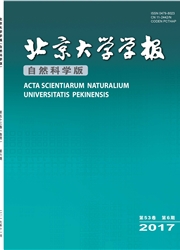

 中文摘要:
中文摘要:
海岸带是人类活动的集中区、环境变化的敏感区和生态交错的脆弱带,在城市化的驱动下,人口与经济活动在海岸带空间上快速集聚,由此引发了一系列土地资源利用的冲突问题。以山东半岛为例对冲突的表现和实质进行分析。并提出协调土地资源冲突的思路与途径:城市建设观念更新,集约用地,精明增长;规划中首先构建土地支撑的区域安全格局;实行刚性与弹性结合的总量控制;空间布局中的功能限定与兼容;以及沟通、参与、公平、多赢的机制政策。以可持续发展的理念进行统筹和协调,实现海岸带的综合管理。
 英文摘要:
英文摘要:
Coastal zone is an interface region by geo-sphere, hydrosphere, atmosphere and biosphere, and also mostly affected by human activities. Driven by urbanization, population and economic activities are fast concentrating in coastal zones, resulting in a series of land use conflicts, especially in the developing countries at economic transition time. Shandong Peninsula is located in the East China. There are six big cities along the coast of the Peninsula. They are Tsingdao, Yantai, Weihai, Rizhao, Weifang and Dongying cities. Along with fast urbanization, there are large changes in land use and land covers. From 1990 to 2003, the cultivated land all decreased in every city, other decreased land use types were grassland, water area and unused land. At the same time, constructed land, garden land and woodland increased. A series of land use conflicts issues must be envisaged. The mostly expressive are three types of conflicts: those between expanding constructed land and decreased cultivated land; those between land resource utilization and conservation; and those between increasing demand for land and degrading land quality. All in all, they reflect the fundamental conflict between short-term economic development and long-run food/ecosystem security. This paper puts forward the approach to coordinate land use conflicts: (1) updating concepts--intensive land use and smart growth, (2) planning order--construct regional security pattern firstly, (3) multi-proposals--land gross control combining rigidity and flexibility, (4) space allocation--functional restriction and compatibility, (5) mechanism and policy--communicate, participate, equitable and all winning. Through controlling the gross area of various types of land uses, improving land use efficiency, and using flexible policies, we attempt to resolve the conflicts between fast urbanization and resultant resource and environment problems, so as to realize integrated and coordinated coastal management.
 同期刊论文项目
同期刊论文项目
 同项目期刊论文
同项目期刊论文
 期刊信息
期刊信息
